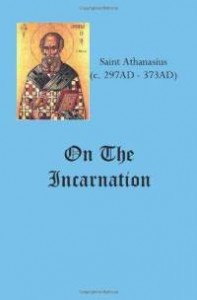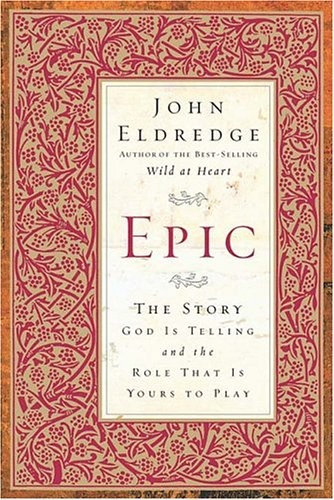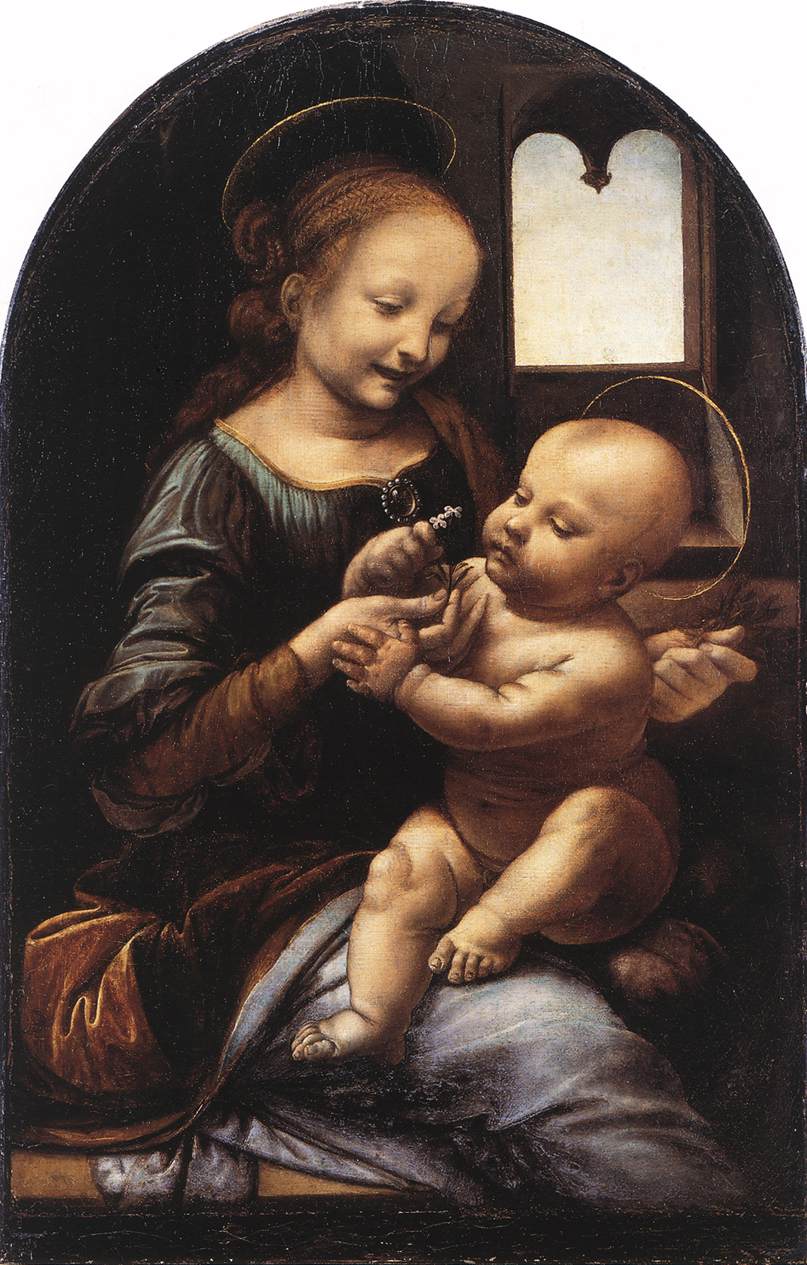On the Incarnation
 I show my ignorance of church history when I admit that I first heard of this book quite recently through Deb on the Run. I can’t fully regret the ignorance that kept it from me till now, though, because this was the perfect time for me to read it.
I show my ignorance of church history when I admit that I first heard of this book quite recently through Deb on the Run. I can’t fully regret the ignorance that kept it from me till now, though, because this was the perfect time for me to read it.
Athanasius, writing in the 4th century, offers here the best discussion I’ve ever read on the Incarnation. Known for his opposition to the teachings of Arius, one of his contemporaries who believed Christ was not co-equal with God but a subordinate, Athanasius ties together Christ’s creative role as “the Word” with his redemptive work. I found it fascinating and satisfying, all the more so because I happen to be reading the book of John at the moment.
Reading Athanasius alongside John had the effect of putting on 3-D glasses and looking at a picture that had appeared merely 2-dimensional before. The Incarnation, writes Athanasius, reiterates and refreshes the original work of creation:
The renewal of creation has been wrought by the Self-same Word Who made it in the beginning. There is thus no inconsistency between creation and salvation for the One Father has employed the same Agent for both works, effecting the salvation of the world through the same Word Who made it in the beginning.
He develops this thesis throughout the first half of this essay with a simplicity and depth that invite many rereadings. And as Deb points out, the love and grace of God are pre-eminent in Athanasius’ thought. Our language can sometimes conjure a highly personal, domesticated notion of the work of Christ, but a grander and more glorious (and more biblical) picture of redemption sparkles from the pages of On the Incarnation. (One reason I liked The Divine Conspiracy so much was that Dallas Willard excavates this vision in his emphasis on “the kingdom of the heavens.”)
Deb’s version included a preface by C.S. Lewis. Mine did not; it was the public domain text available online at the link given above. However, Lewis’ intro, “On the Reading of Old Books,” is included in God in the Dock. He writes of the simplicity and accessibility of Athanasius’ Greek and calls On the Incarnation a “sappy and golden book.” The only place where I found the language of this ancient document opaque was in its continued reference to God as the “Artificer.” Somehow this is synonymous with “Creator,” but to my modern mind it carries some negative connotations. I’d like to investigate the term further.
The second half of this short (97 pages) treatise addresses Jewish and Gentile objections to the divinity of Christ. This part wasn’t as interesting to me. It also depressed me a bit, for the same reasons C.S. Lewis implies when he writes, “We cannot point to the high virtue of Christian living and the gay, almost mocking courage of Christian martyrdom, as a proof of our doctrines with quite that assurance which Athanasius takes as a matter of course. But whoever may be to blame for that it is not Athanasius.”
On the Incarnation is my first foray into the writings of the early church, one I intend to follow up soon with this book . There are many passages I’d like to quote here, but the result would be a poor rehash of a master’s thought. Instead, I’ll simply give it my wholehearted recommendation.


